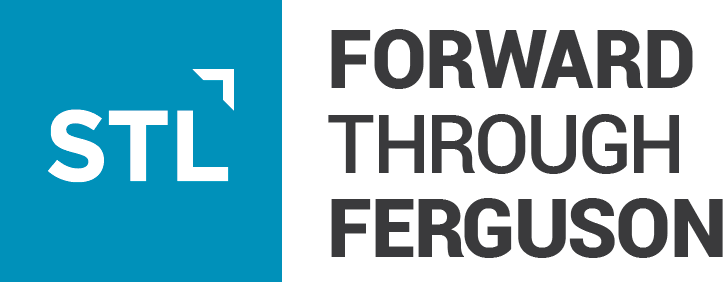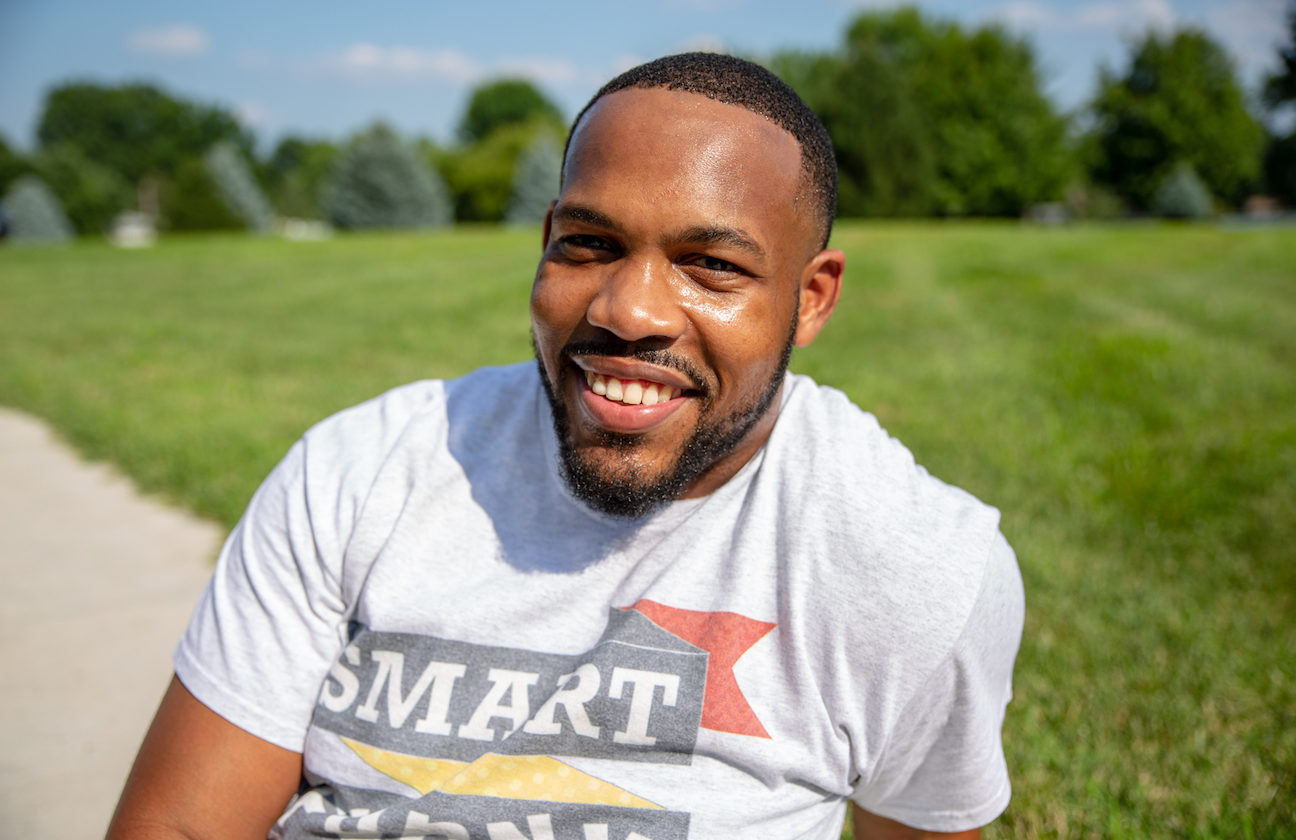Part of the #FiveYearsLater #STL2039 series with Humans of St. Louis
There was a time when we were one of three or four Black families in a subdivision of 50 plus homes in Ferguson. Now you can drive through the same subdivision and it’s the complete opposite. Throughout my life my dad taught me about gentrification and White flight. Then, suddenly I saw it happening. Black people were coming in and White people were leaving. Seeing that first hand was mind-blowing. Throw in the tragedy of Mike Brown on top and it was a transformative moment for me. I didn’t know it would create an energy for change and activism in me and around the world.
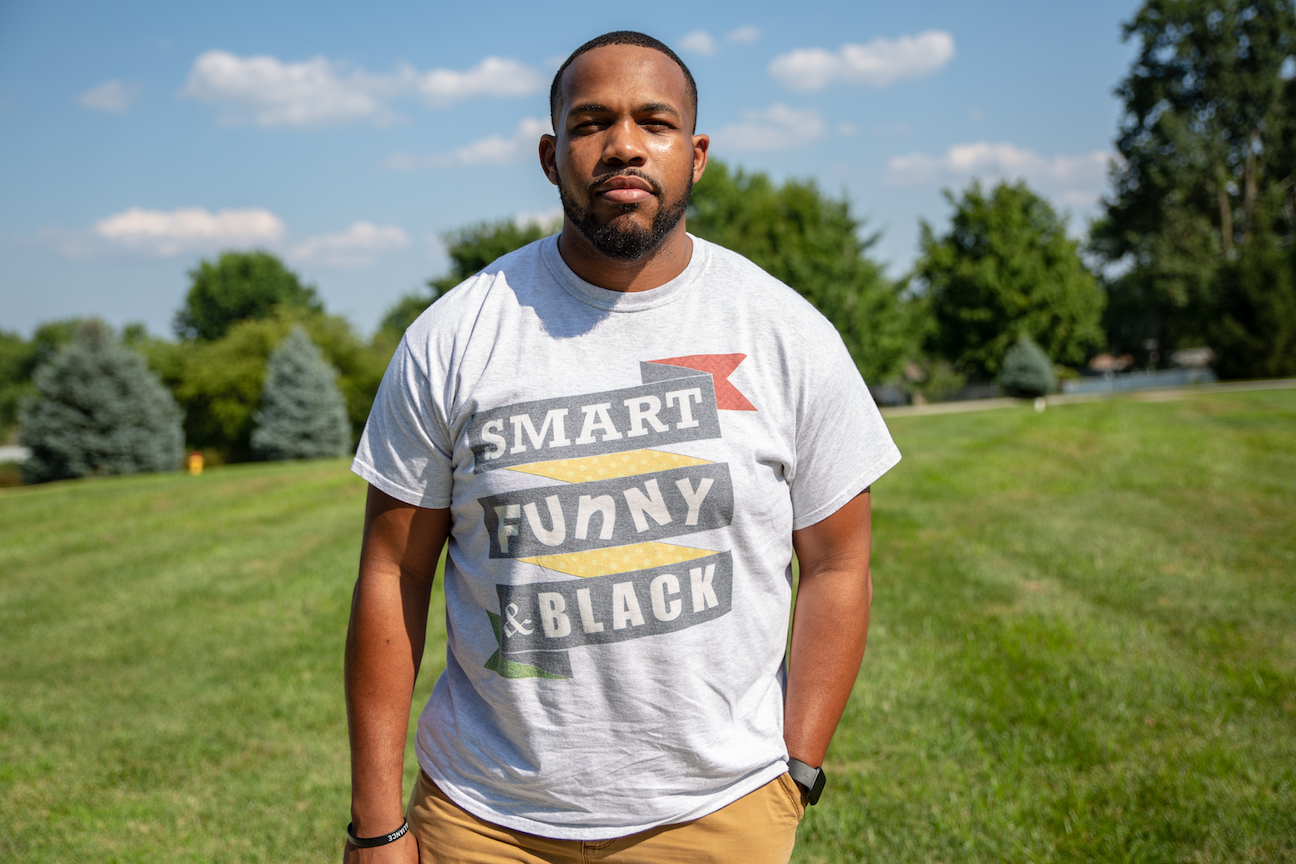
Joshua Jones, Photostory by Colleen O’Connell Smyth/Humans of St. Louis
During that time, I was starting my master’s program at Saint Louis University. My mentor, Dr. Stephon Bradley, took me under his wing. When I first went to West Florissant it was with him because I got word that one of our students had gotten pepper-sprayed for peaceful protest. Dr. Bradley was getting all of these asks for interviews. He told the reporters, ‘I’m not accepting interviews unless you allow me to bring these young people with me. They are the ones who can speak to these experiences of living here. If you want to hear from me, go read my articles. Go read my books. Because I have access to those spaces. They don’t.’ They were like, ‘Alright, c’mon.’ So we interviewed with MSNBC, and other stations wanted to hear more from us. It was surreal to be able to be a voice for people who felt like they weren’t being heard.
This was what pain looks like as a result of generational trauma and poor relations within a community where people are voting, participating, and paying taxes, and yet they still feel like they don’t have the same rights as their White neighbors.
I asked my students and friends, ‘What do you think is important for me to say right now? What do you want the world to hear?’ Given the climate, Ferguson was well overdue for this. I wanted people to understand that Ferguson was not an anomaly. It could have happened anywhere, and it can happen anywhere. The system exists all over the country. People from Ferguson, especially White residents, were so taken aback by the uprising and didn’t understand why people were ‘rioting.’ Because of what I studied and my conversations with Dr. Bradley, I was able to say, ‘This reaction isn’t new. Dr. King talked about rioting being the language of the unheard. The people in the streets don’t feel heard or seen.’ It was important that people saw us – that they saw me – and that they didn’t lump us into a box of ‘looters and rioters.’ It was equally important to humanize people who were doing those things. This was what pain looks like as a result of generational trauma and poor relations within a community where people are voting, participating, and paying taxes, and yet they still feel like they don’t have the same rights as their White neighbors.
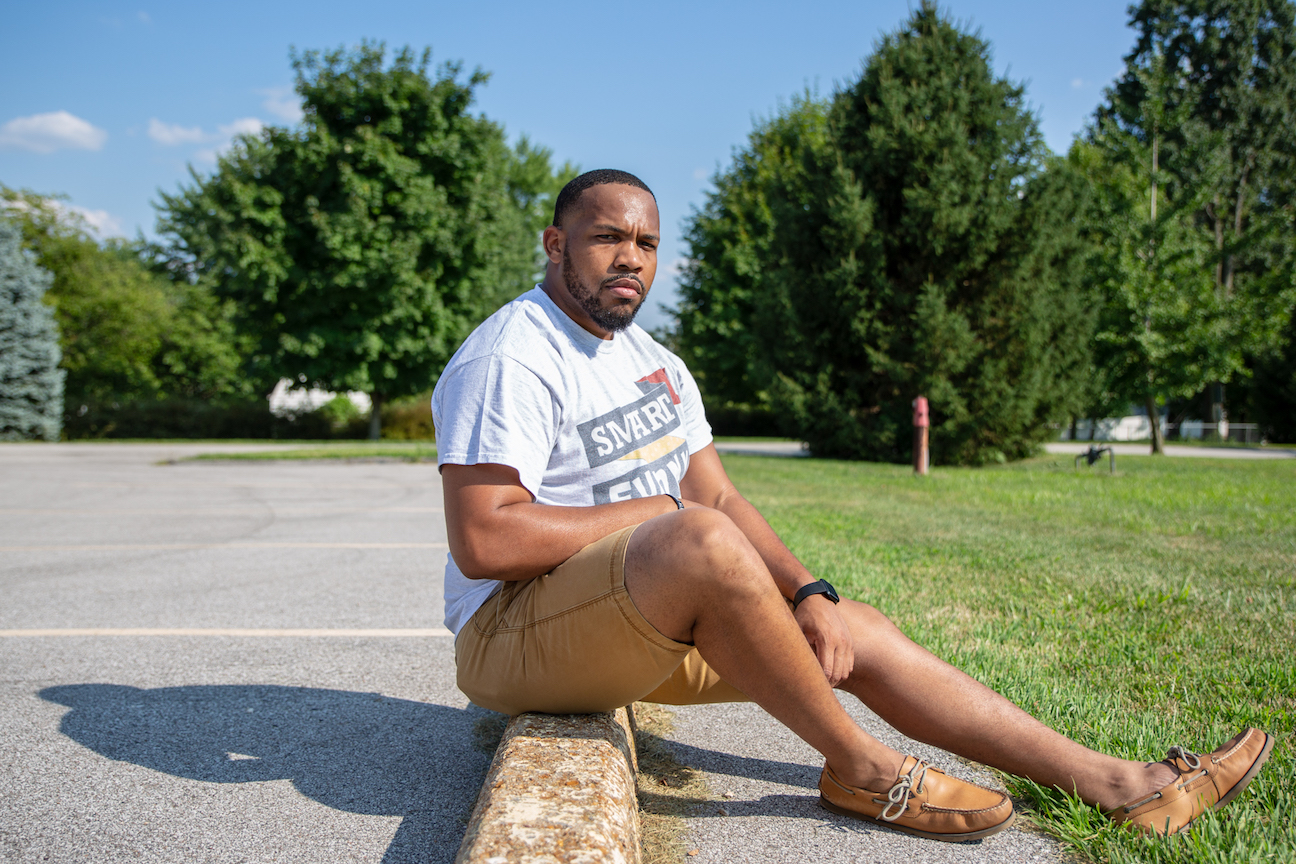
After Mike Brown was killed, the immediate thing that I noticed was the production of ‘I Love Ferguson’ signs. Before, I would say, ‘I do love Ferguson. This is my home.’ But the question became, ‘Does Ferguson love me?’ I started to notice where all of the signs were, and they told me a completely different message as a Black man. Black people had Black Lives Matter signs in their yards, and White people had ‘I Love Ferguson’ signs. There was so much work to be done.
Before, I would say, ‘I do love Ferguson. This is my home.’ But the question became, ‘Does Ferguson love me?’
You could go a block over on West Florissant even during the protests and there were people outside barbecuing and dogs barking and birds chirping. All of that. The news was making it seem like all of St. Louis was on fire, and it was literally one street. There was a lot more emphasis being placed on property than lives. When the Department of Justice report came out, and we learned these very tangible things about how people were having unlawful interactions with police, it brought clarity to a lot of people. But not everyone.
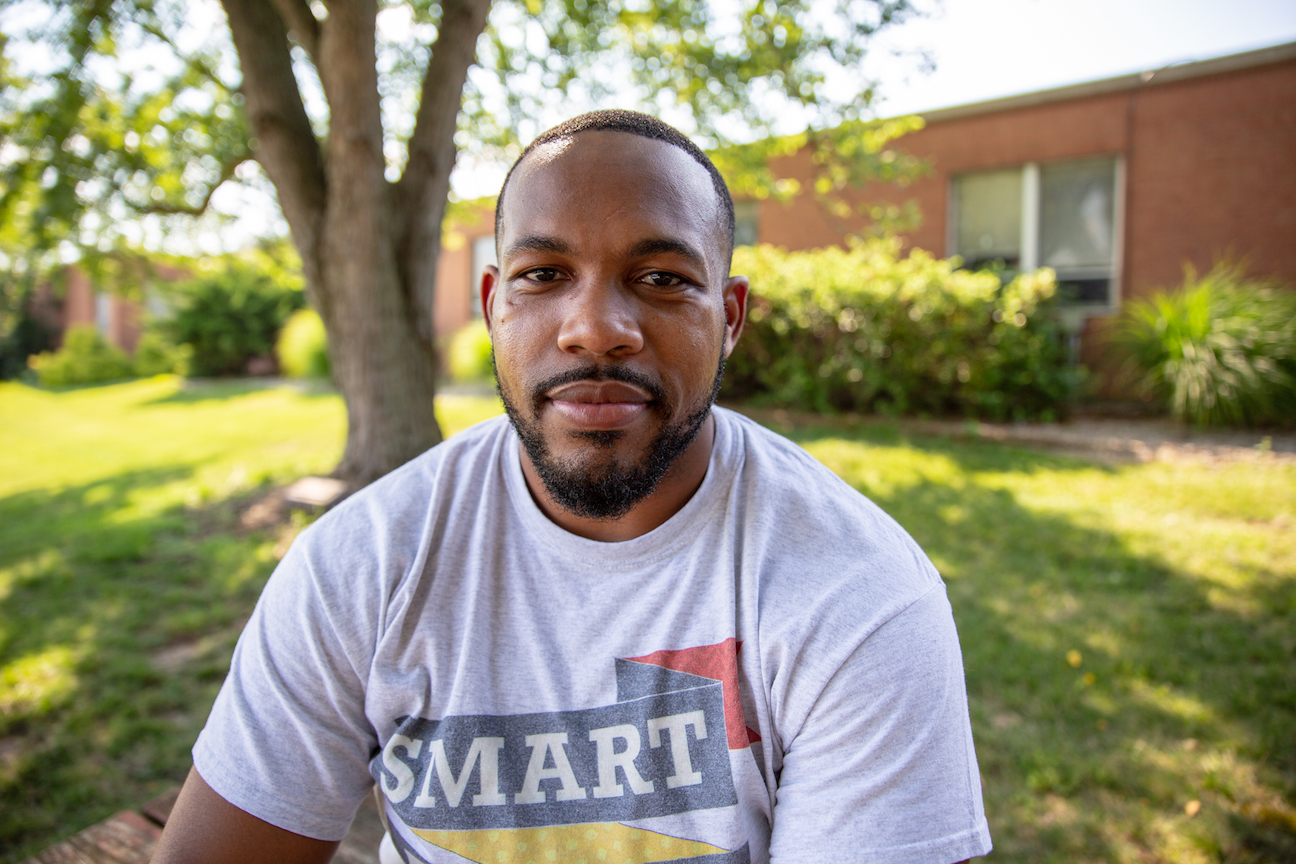
At work, in the Cross Cultural Center the plans we had for the school year were put aside. We knew we had to respond and to make sure that the young people were okay. One of the things we did was teach students how to communicate and distinguish between dialogue, discussion, and debate. I led many conversations amongst just Black men, but there were interracial conversations, too. Mike Brown’s death was just the start. There were other shooting deaths of Black men and women during those years. Then we had the election. A lot of people had to go to work and shut that part of themselves off. Being at a university gave me a unique experience in a place to educate. We had to have these discussions. Students were coming to my office and asking, ‘How do we move beyond this? What do we do?’
A group of them responded by staging an occupation of the clocktower on campus to protest lack of equity for students of color. A lot of the dialogues were happening during the night, so there were times when I didn’t leave campus until 1 am. Then the calls came. The university opened up phone lines for staff to work because parents were calling and saying things like, ‘My child is unsafe. I need to talk directly to the president. This is unacceptable.’ I remember one parent said, ‘How do I know that my daughter won’t get pulled into the tents where people are staying on campus and get raped?’ I was like, ‘I am not ready to go talk to someone’s parents about that because I don’t know how I would respond. Let me do the work so I can know how to engage and help give parents perspective.’
I went to the protesters occupying the clocktower and asked, ‘Why are you here?’ They told me, ‘We know the university has clout in the community. There are people here who have access to resources that we will never have access to. There are future politicians here. There are future doctors here. There are people who will be able to implement change, and they don’t understand our experiences.’ Having that information I thought, ‘Now I know what to tell these parents.’ But, it did not protect me from comments.
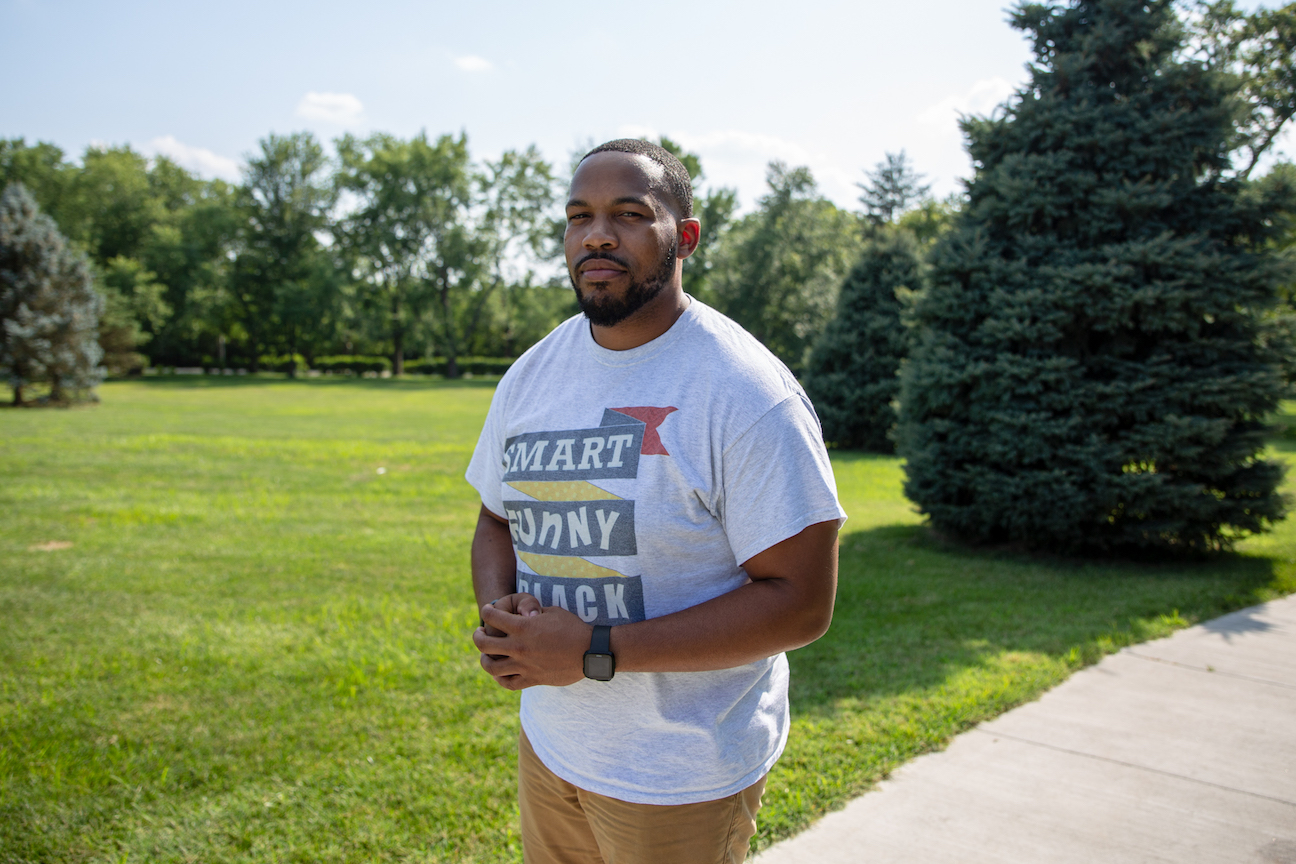
Some parents felt like I was defending the activists. One asked me over the phone, ‘Are you colored?’ and let me know that he was the sheriff of his town’s police department. I was like, ‘No, sir. I’m a Black man. I do not identify myself as colored.’ He didn’t know how to respond. And there were many discussions with White folks saying, ‘My family was Irish. My family came from Italian immigrants.’ And I had to say, ‘You still have Whiteness. I can’t turn my Blackness off even if I put on a suit.’
When you have an identity that makes people feel unsafe, you always have to have a layer of self-preservation just to exist in certain spaces. When people don’t feel safe around you, they make unsafe decisions that can harm you.
I’ve walked down the street from a parking lot to go to my office at SLU before with slacks, a shirt, and a tie and heard car doors locking as I walked by. When you have an identity that makes people feel unsafe, you always have to have a layer of self-preservation just to exist in certain spaces. When people don’t feel safe around you, they make unsafe decisions that can harm you.
The bar for racism is set real low. Like, if you don’t use the N-word, then you’re not racist. But if you’re not taking into consideration whether or not you’re benefiting from your White privilege and how you might be contributing to a racist system. If you’re not thinking about what it means to be living within a White racist society and gaining awareness about how those things infiltrate your life – even as a Black man – then you can cause harm despite having full intentions of doing good.
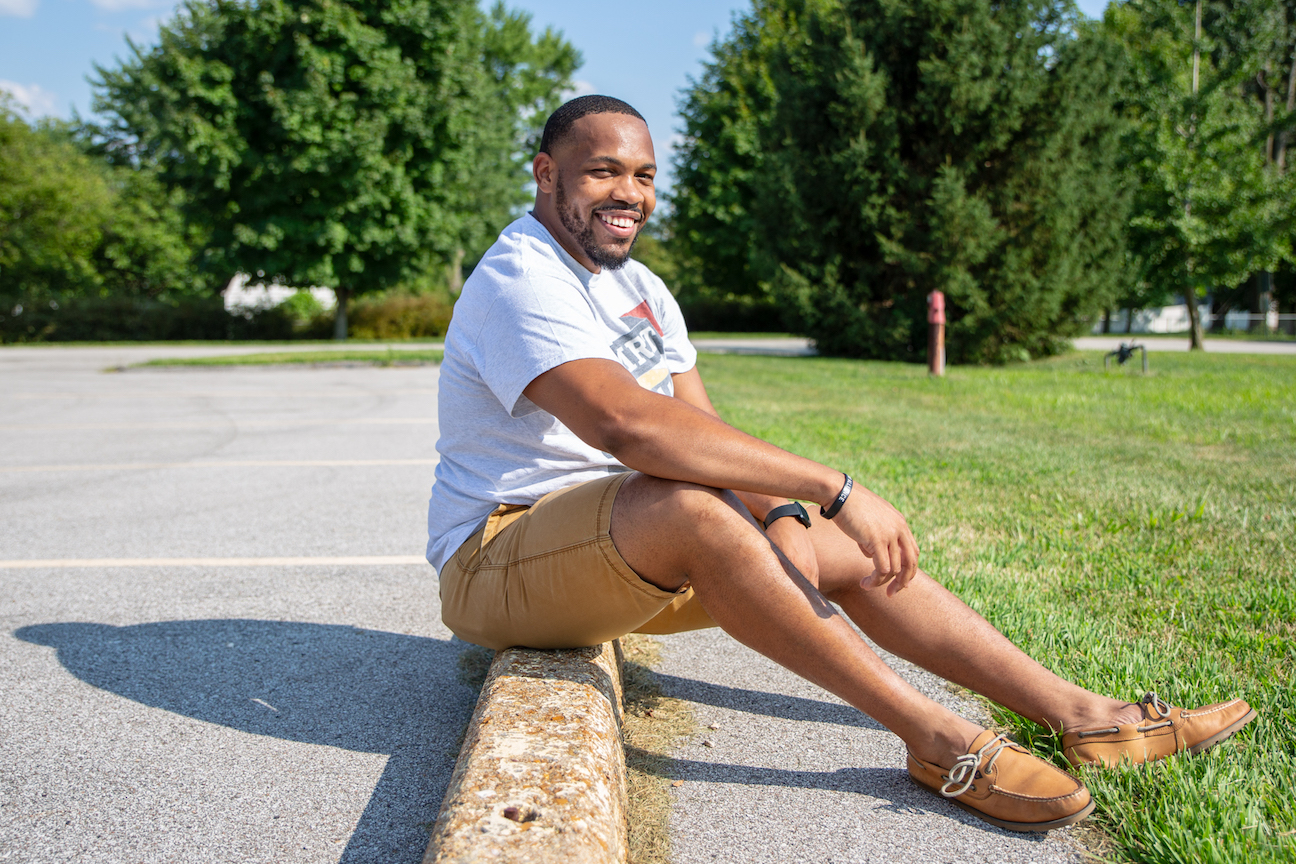
I see people who refuse to stop. They have that ‘I-believe-that-we-will-win’ mentality. If we want to break the curse to stop generational trauma, we have to be willing to put in the work. It’s not always encouraging in this society. How can we ever move beyond where we are right now when certain people are in office and in power making the decisions that they are?
If we want to break the curse to stop generational trauma, we have to be willing to put in the work.
For me, my faith plays a role in that. And, seeing young people’s energy. To be able to see those students working to make sure they’re walking across the stage in four years and sometimes putting their homework on the back-burner so they can be in the streets. If they’re doing all that work, then they need support. If I can be that, then I want to be that.
